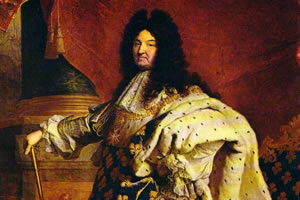At the end of the Julio-Claudian dynasty, a severe crisis among the Roman military established itself with the expectation of the appointment of a successor in the empire. Different factions in the army advocated choosing a different emperor. The members of the Praetorian Guard wanted the choice of Otho. The legionaries of the Iberian Peninsula were aiming for Galba's ascension. In contrast, the armies deployed in Germania and Gaul preferred Vitelius and the troops of the East, the election of Vespasian.
Between the years of 69 and 68, an exhausting civil war between the Roman troops ended up deciding for the choice of Vespasian as the next emperor, the Flavio dynasty had begun. Coming from a rich family of the equestrian class, the new emperor had as two great initial challenges: pacifying the political scenario and organizing the troops that would quell the revolt of the Jews. For this last task, he appointed his son Titus, who ruined the city of Jerusalem.
Through a series of reforms, this emperor established the economic recovery and strengthening of the Roman state. It is interesting to note that Vespasiano also expressed concern about encouraging the realization of historical works and other books that valued his administration. Philosophers and intellectuals who dared to curse the actions of this emperor could be sentenced to summary execution.
Do not stop now... There's more after the advertising ;)
At the end of his rule, Vespasian appointed his son Titus to the Roman Senate as his successor in the imperial post. As emperor, Titus had to recover the cities of Pompeii and Herculaneum, which were hit by the catastrophic eruptions of Mount Vesuvius. In addition, he had to recover public works that were hit by a new fire that took over the city of Rome. With this, we observe that a large body of public works was conducted under his administration.
The last emperor of this dynasty was Domitian (81 - 96), who sought to weaken the political influence of the senators and exert unlimited imperial power. Believing that the exercise of the imperial office was divinely motivated, his administration became known for the intervention in issues ranging from the conduct of armies to particular elements of the life of the Roman citizen. Eventually, he was murdered in a coup organized by his court officials.
By Rainer Sousa
Graduated in History
Would you like to reference this text in a school or academic work? Look:
SOUSA, Rainer Gonçalves. "The Flavio dynasty"; Brazil School. Available in: https://brasilescola.uol.com.br/historiag/a-dinastia-dos-flavios.htm. Accessed on June 27, 2021.


